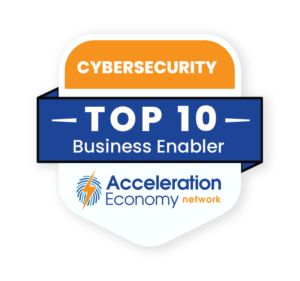We often talk about how channel partners help with the implementation and integration of cybersecurity solutions as well as provide ongoing support and maintenance. But we rarely talk about how companies can use a channel partner as a CISO alternative of sorts, someone who can staff all the roles needed under a formal CISO without adding any actual headcount.
There are several potential scenarios where partners could be a CISO alternative. One of the most common is the lack of budget to justify or support hiring a dedicated CISO. Don’t have the knowledge and real-world experience of my fellow analysts (and CISOs) Chris Hughes, Robert Wood, or Frank Domizio? Strategic security partners may be the answer.
In this analysis, I’ll explore how, through eight services, a channel partner can serve as an alternative to a CISO in some critical areas. You can also completely outsource your CISO function if you use all of the services I’ll describe plus a security advisory service.
8 Cybersecurity Services That Partners Can Provide
Not all firms have the funds, size, or commitment to have a full-time CISO on board — that’s when a good partner can fill many of the core functions of this role. The partner can also act as a protective barrier to ensure that your firm’s security posture and actions are well documented and aligned with industry standards, and that all needed elements of a good security plan are in place.
These channel partners can offer a wide range of cybersecurity services, including but not limited to:
- Vulnerability assessments and penetration testing: Services identify and assess potential vulnerabilities in a company’s information technology (IT) infrastructure, including networks, systems, and applications.
- Security information and event management (SIEM): Collect and analyze security-related data from a variety of sources to provide real-time visibility into potential security threats.
- Identity and access management (IAM) or authentication: Help secure and manage access to sensitive data and systems by controlling who can access them and under what conditions.
- Network and cloud security: Protect a company’s IT infrastructure from threats, such as malware, hackers, and unauthorized access by bad actors.
- Data loss prevention (DLP): Helps improve data security by prevent the loss or theft of sensitive data, such as credit card numbers or personal information.
- Security awareness training: Prevent the more than 70% of intrusions that happen because of human behavior. This type of service can help companies to train their employees to be more aware of security threats and to follow best practices for protecting sensitive data.
- Managed security services: Include around-the-clock monitoring and management of security infrastructure, as well as incident response and remediation which can yield great time and cost savings for firms with limited IT and security staff.
- Compliance and regulatory services: Help companies meet industry-specific compliance requirements and regulations such as Health Insurance Portability and Accountability Act (HIPAA), Service Organization Control 2 (SOC2), Payment Card Industry Data Security Standard (PCI-DSS), etc. when the firm doesn’t have in-house expertise.
Final Thoughts
Firms can obtain security solutions in piece parts or as a full package that includes fractional CISO service. Smaller firms may find using a partner helpful until they can afford or support a full CISO on staff, and other firms may determine that using a partner as a permanent solution is best for their business.
Partners offer the ultimate flexibility. The decision is truly up to the company and the partner they select — making partners a great alternative for any firm that is grappling with how to respond to the ever-increasing threat vector.
As you consider whether cybersecurity channel partners are the best route for your business, take advantage of the lessons from the trenches of cybersecurity delivered by our CISO experts here at Acceleration Economy.
As always, happy partnering.
Want more tech insights for the top execs? Visit the Leadership channel:








